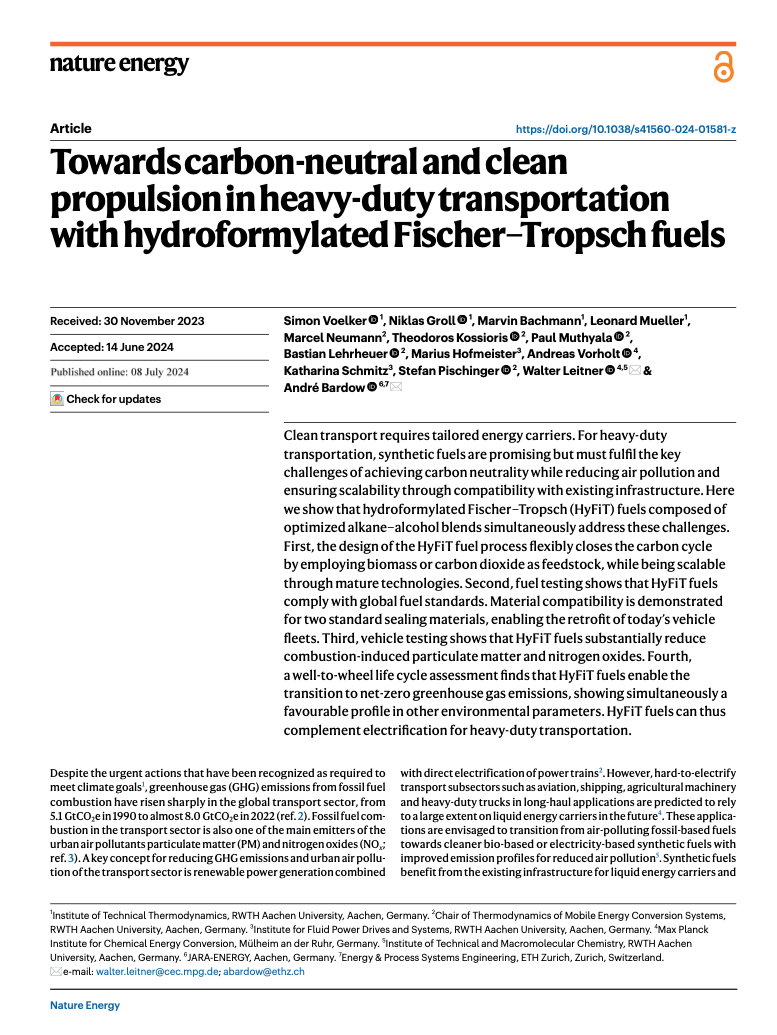Innovation outlook: Renewable methanol

The International Renewable Energy Agency (IRENA) and the Methanol Institute present the innovation outlook on renewable methanol. Within this publication they identify challenges, offer policy recommendations and explore ways to produce renewable methanol at a reasonable cost.
Methanol is one of the four critical basic chemicals – alongside ethylene, propylene and ammonia – used to produce all other chemical products. About two-thirds of methanol is used to produce other chemicals, such as formaldehyde, acetic acid and plastics. Methanol’s use as a fuel – either by itself, as a blend with gasoline, for the production of biodiesel, or in the form of methyl tert-butyl ether (MTBE) and dimethyl ether (DME) – has also grown rapidly since the mid-2000s. Most methanol is currently produced from natural gas or coal, with estimated annual life-cycle emissions of 0.3 Gt CO2, around 10% of the total chemical and petrochemical sector’s CO2 emissions. Addressing emissions from methanol production is therefore a key component of the decarbonisation of the chemical sector and could contribute to the transport sector where the methanol can be used as a fuel.
The need to mitigate climate change and eliminate carbon dioxide (CO2) emissions from all kinds of energy use has prompted rising global interest in renewable methanol. The shift to such types – derived from biomass or synthesised from green (renewable-based) hydrogen and CO2 – could expand methanol's use as a chemical feedstock and help to make industry and transport fuels carbon neutral. Costs for renewable methanol are currently high, while production volumes are low. But with the right policies, renewable methanol could become cost competitive by 2050 or earlier.
Key recommendations of the report:
- Ensure systemic investment throughout the value chain, including technology development, infrastructure and deployment.
- Support market forces in the chemical sector, focusing on carbon intensity in consumer products.
- Acknowledge how renewable methanol can contribute to carbon neutrality in "green deals", COVID-19 economic recovery packages and hydrogen strategies.
- Translate the political will for carbon reduction into regulatory measures and support.
- Level the playing field for renewable methanol through public policy, including electrification and sector coupling measures, which would integrate renewable power supply with fuel demand throughout the economy.
- Encourage international co-operation on trade strategies to create jobs and foster competitive new "e-methanol" industries in both producing and consuming regions.
Recente artikelen
IEA Bioenergy: Evaluation of Brazil's RenovaBio Program' approach to reduce land-use change emissions from biofuels

Voelker et al.: Towards carbon-neutral and clean propulsion in heavy-duty transportation with hydroformylated Fischer–Tropsch fuels | 2024

EERA Bioenergy: Bioenergy, biogas and biofuels - Research and innovation gaps in the EU | 2024


